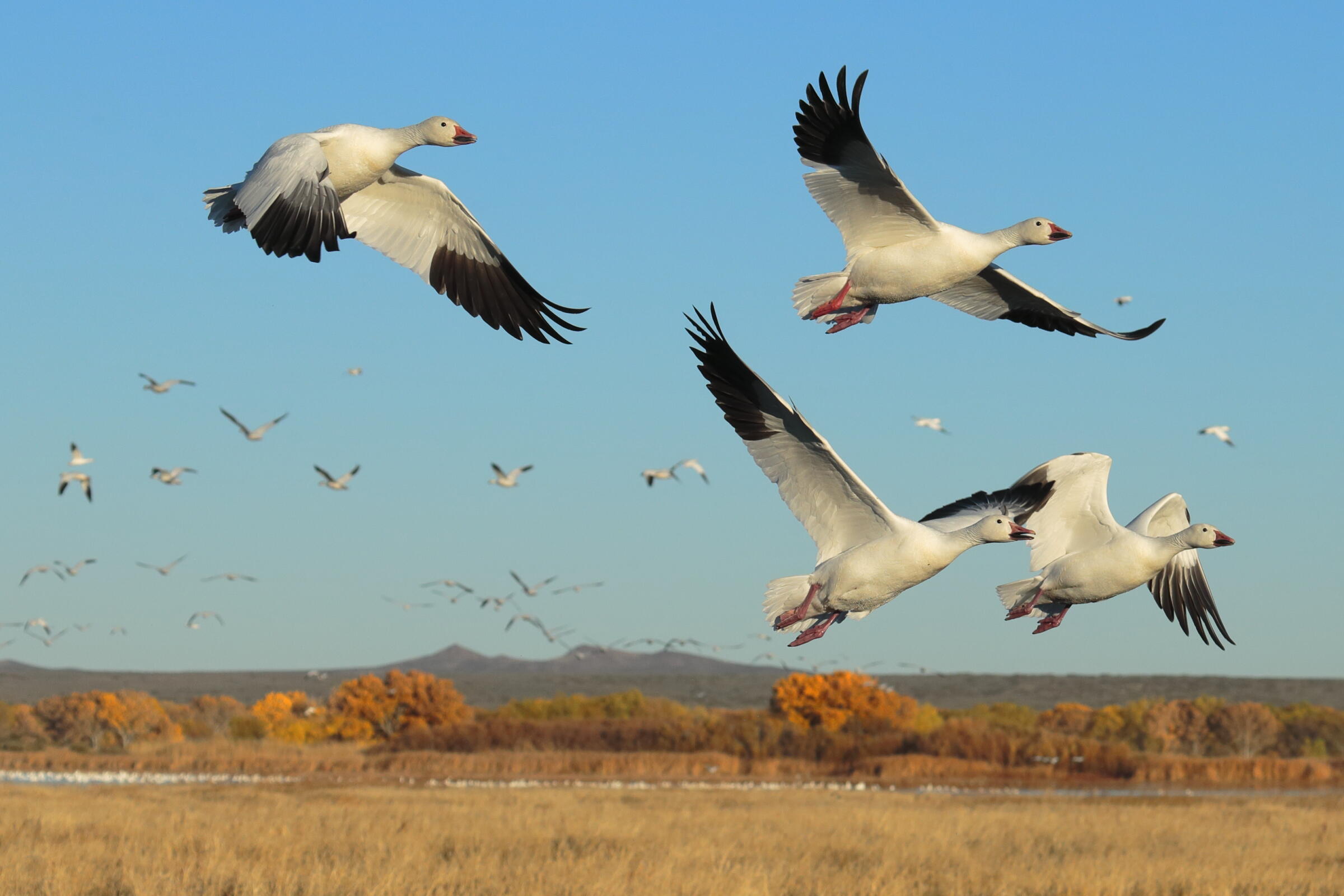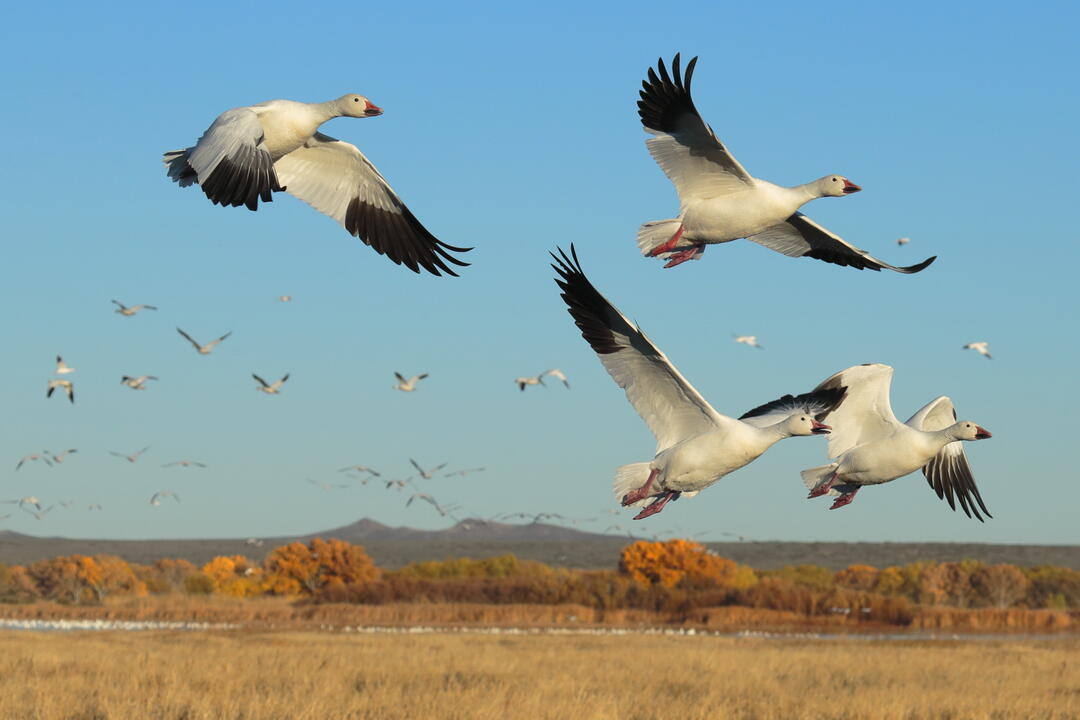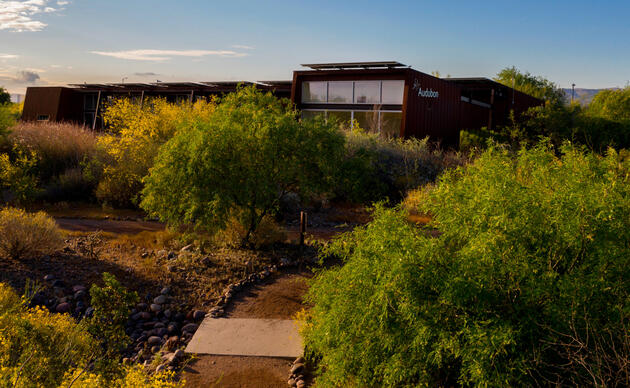2020 has been a difficult year for everyone but that hasn’t stopped the staff and supporters of Audubon Southwest from achieving big things for the birds, people, and landscapes of Arizona and New Mexico. Here are a few of our highlights:
Keeping our rivers flowing
In 2020 we secured a long term grant which will support voluntary water leasing on the Rio Grande for the next 8 years. What this means is, like this year when we were able to release 530 acre feet of water into the Rio Grande to prevent the river from drying, we will be able to help ensure that the Rio Grande remains a verdant ribbon of life in an uncertain climate future for years to come. We also pursue strategies to support this work at the New Mexico legislature. In 2020 we were able to secure $750K for the Strategic Water Reserve, allowing the state to purchase water rights for a variety of uses including meeting the biological needs of endangered species.
In Arizona, Audubon Southwest advocates successfully beat back bad federal legislation that would have breathed new life into the currently dormant Yuma Desalting Plant—a project that would cut off the water supply for the Cienega de Santa Clara in northern Mexico, one of the most important habitats for the endangered Yuma’s Ridgeway Rail. Our voices made a difference in ensuring that the Central Arizona Project removed its support for the project.
Audubon members like you helped save the Gila River—one of the last free-flowing rivers in the Southwest. The Gila and its tributary, the San Francisco, were the site of a proposed water diversion that would have seriously harmed the local ecosystem but thanks to our collective efforts the project may have been stopped once and for all.
Equity Diversity and Inclusion
As our country reckons with its history of systemic racism, we have begun the work to transition Audubon from a historically white organization to one which centers equity, diversity, and inclusion in all our conservation work.
In 2020 we increased our efforts to reach out to our Spanish-speaking community. In our attempts to have our content be more inclusive and accessible, we have committed to featuring content from scientists and conservationists that represent the full diversity of communities in the southwest and began offering webinars with bilingual translation and captioning.
We joined a growing movement on social media over the summer to celebrate #BlackBirdersWeek by devoting our channels to amplifying the voices of young Black birders who, in the wake of the Christian Cooper incident in Central Park, are seeking to counter the narrative that the outdoors is not a place that Black people should be.
We’ve only just started the work, but this year we have overcome the inertia that came with being a historically white organization and taken our first steps toward representing all communities. 2021 will be an exciting year for this work at Audubon Southwest.
Transition to remote…well, everything
With limits on public gathering sizes restricting our ability to conduct planned habitat restoration days we created a new Grow at Home Program that provides plant materials to volunteers so they can grow native vegetation to aid in restoration projects from the safety of their own home. Our volunteers grew plants over the summer that were later replanted at state parks and wildlife refuges to help habitat restoration efforts where they are needed most.
Recognizing that in-person education was going to be challenging, we distributed over 3,350 bilingual activity booklets and STEM kits to students in Northern New Mexico from March to June. Materials targeted low-income families, many of whom do not have internet access. Our education staff were also able to engage over 40 teachers from across New Mexico in professional development trainings to help them teach online and embed outdoor science learning in their distance education plans. And we developed video content that allows students and teachers to go through our programs at their own pace from the safety of their homes.
We have continued to educate audiences of all ages, reaching over 8,000 people though our webinars, virtual programming, and materials distributions. In particular our Arizona policy team hosted 11 webinars that garnered 1,162 attendees and we’ve had more than 1,700 advocacy actions taken as a result of our office’s alerts—from folks sending emails to their legislators to commenting on bills.
Advancing bird science
We created a habitat prioritization map for the endangered Yuma Ridgway’s Rail on the Gila River west of Phoenix that identifies locations where the Rails are likely to occur and where restoration could generate additional habitats. The model presents a comprehensive scientific snapshot about the species’ habitat and documents current potential habitat on the Gila River that will guide land management decisions.
Through survey efforts on 16 routes across 40 kilometers of streams and 3 Important Bird Areas, Audubon surveyors identified 32 territories occupied by the endangered Western Yellow-billed Cuckoo. 17 volunteers across two Audubon chapters volunteered their time to this effort, contributing over 240 hours to the cause.
Along the Middle Rio Grande our staff conducted surveys for the endangered Southwestern Willow Flycatcher and monitored other biotic and abiotic factors that impact the habitat these birds need. This monitoring is informing the development of restoration designs for key irrigation outfall locations in the Middle Rio Grande and helped create conceptual models for the flycatcher that will guide conservation action.
We also began collecting grassland bird population data in the Permian Basin in order to guide restoration and protection efforts in a region that is home to a major portion of North America’s longspur population and is also experiencing massive development as it remains one of the largest oil and gas plays in the world.
Conservation through collaboration
The challenges we face are too large to address alone. Therefore partnerships with government agencies and private industry are key to finding conservation solutions. In 2020, we expanded the Western Rivers Brewers’ Council to 26 members across two (soon to be three!) states, released two collaborative brews (the Hummingbird Spring Saison and the U9 Lager) designed to connect followers with conservation action opportunities, and installed Audubon’s first Bird Friendly Beer Garden at Arizona Wilderness Brewing.
Some of our strongest partnerships are with our state wildlife agencies. In Arizona we have renewed a 5 year contract with Arizona Game and Fish Department to continue protecting and restoring our network of Important Bird Areas in the state. And in New Mexico our water team is working with New Mexico Department of Game and Fish to redesign irrigation and wetland systems at Bernardo Wildlife Management Area and Tucumcari Lake, both of which provide vital habitat for birds including migratory waterfowl and Sandhill Cranes.
In our efforts to keep the Rio Grande ecosystem thriving we are involved in a variety of collaborative partnerships that bring diverse stakeholders together to find conservation solutions. We are the NGO representative on the executive committee seat for the Rio Grande Basin Study. We are assisting the Middle Rio Grande Conservancy District’s Conservation Action Committee with developing strategies for water leasing and habitat conservation. And we brought partners together through the formation of the Isleta Reach Stewardship Association, a new collaboration aimed at creating and maintaining a lasting effort to keep the Isleta Reach of the Rio Grande healthy and vibrant.
And one last feel good story…
Downtown Owl Conservation Workday
In November our Arizona staff and volunteers ventured out to Powers Butte Wildlife Area south of Phoenix to create habitat for one of our favorite Southwestern birds, the Burrowing Owl. Check out this video to see how our actions are helping to conserve these charismatic little birds.
Our conservationists, ecologists, educators and volunteers who work tirelessly to conserve and restore the Southwest’s natural ecosystems, thank you for the support you give. Your gifts help us continue that crucial work and provide our staff with moral support. Please consider giving a gift today by clicking here or sending a check to: Audubon Southwest, PO Box 9314, Santa Fe, NM 87504.







